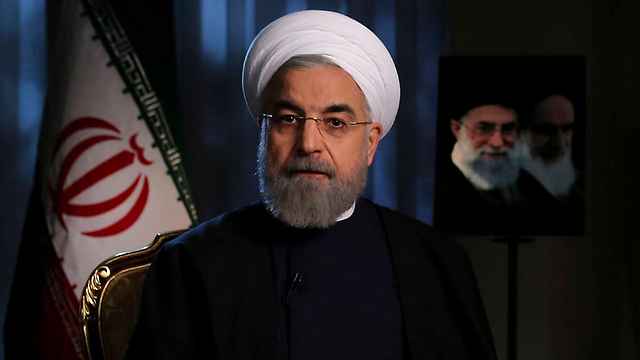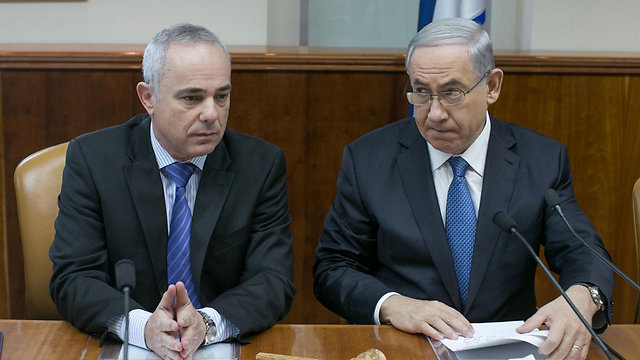PM Netanyahu denounced repeated concessions stemming from Iran’s stubbornness while Minister Steinitz told cabinet, inspection system is flawed, allowing Iran the time to cover up any of many possible illegal activities.
By Reuters
Prime Minister Benjamin Netanyahu accused world powers on Sunday of stepping up concessions to Iran to enable a deal by June 30 on curbing its nuclear program even as Tehran balks at demands for heightened UN inspections.
 President of Iran Hassan Rouhani – Photo: AP
President of Iran Hassan Rouhani – Photo: AP
Netanyahu has argued that the agreement in the works would not deny Iran, which says its nuclear projects are peaceful, the means of making a bomb, while granting it sanctions relief that could help bankroll its guerrilla allies in the region.
“To our regret, the reports that are coming in from the world powers attest to an acceleration of concessions by them in the face of Iranian stubbornness,” Netanyahu told his cabinet in broadcast remarks on Sunday. He did not offer further details.
Netanyahu’s point-man on the Iranian talks, Energy Minister Yuval Steinitz, said it appeared that world powers were prepared to accommodate Tehran’s resistance to expanded, short-order UN nuclear inspections and demand to continue research and development of uranium centrifuges that make nuclear fuel.

Energy Minister Yuval Steinitz & PM Netanyahu – Photo: Ohad Zwigenberg
On Saturday, Iranian President Hassan Rouhani said his country, in the name of protecting state secrets, could reject stepped-up inspections, even at the cost of missing the June 30 deadline. Western diplomats had sought the right to carry out inspections with as little as two hours’ notice.
But in a televised address on Sunday, Rouhani played up the benefits of easing Iran’s international isolation and pledged to reach a deal that would end the hardship of sanctions.
Steinitz, who was in Washington last week to discuss the Iran diplomacy, said the world powers – the United States, Russia, China, France, Britain and Germany – were considering a stop-gap whereby inspections would be decided on “by committee”.
“Such an arrangement might offer reassurance on paper, but in reality it would give Iran time to cover up illegal nuclear activity or even relocate it off-site,” Steinitz told Reuters.
He added that Israel saw no reason for world powers to allow Iran to continue research and development on uranium centrifuges “if this deal is indeed meant to freeze its program for years”.
On a visit to Israel last week, America’s top general sought to reassure Israel, widely assumed to have the Middle East’s only atomic arsenal, of “unshakable” US military support.
General Martin Dempsey said long-term prospects were “far better” with an Iran that was not a nuclear weapons power and that Washington would work to mitigate Iran-related risks, with or without a deal.
Netanyahu urged world powers to hold off on a final accord.
“From the outset, the agreement being put together looked bad. It looks worse and worse with each passing day,” he said in his cabinet remarks.
Asked to rate the chances of world powers deferring the deadline to renegotiate the deal, Steinitz said: “Fifty-fifty.”
The United States has said it stands by the end-June deadline for an agreement but other officials have indicated the date might be missed as negotiations about technical details drag on.
View original Ynet publication at: http://www.ynetnews.com/articles/0,7340,L-4668323,00.html






 Israeli New Shekel Exchange Rate
Israeli New Shekel Exchange Rate